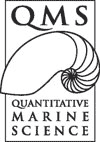
42 nd European Marine Biology Symposium
Kiel , Germany 27-31 August 2007
The UTAS-CSIRO Joint PhD Program in Quantitative Marine Science kindly provided funding for me to attend the 42 nd European Marine Biology Symposium from 27 th to 31 st August 2007 Auditorium Maximum of Christian-Albrechts-University, Kiel. This was an interested experience as this only the second international conference that I have attended.
The themes of the European Marine Biology Conference were, global change: effects of climate change on marine ecosystems, invasion ecology and the ecosystems consequences of biodiversity change. The focus of my PhD research directly encompasses two of these themes, namely invasion ecology and ecosystem consequences of biodiversity change.
I gave my presentation during the biodiversity session. The title of this presentation was the effects of fishing and Centrostephanus rodgersii on blacklip abalone Haliotis rubra.
To summarize my research showed that that fishing of H. rubra did not contribute to C. rodgersii invasion success. Instead there was strong evidence that a combination of direct and indirect interactions with C. rodgersii were likely to be responsible for the decline and subsequent rarity of H. rubra in barrens areas. In other work, surveys and experimental removals of H. rubra indicated that fishing of abalone results in smothering and/or overgrowth of encrusting algae (largely non-geniculate coralline algae) by sediment, filamentous and foliose algae and a range of sessile invertebrates. Emergent H. rubra actively moved away from areas covered by the matrix of filamentous algae, sediment and sessile invertebrates, affecting recruitment to the fishery. Both these findings highlight that there is a growing demand for broader ecosystem based management (EBM) approach to fisheries management.
My presentation was well received with lots of interesting questions. Overall, I got good feedback from lots of international researchers. I was pleased to learn that the quality of research in Tasmania is equal to that of Europe .
The Meeting was large and well attended with approximately 250 delegates. These delegate came from all over the world. There were 105 oral presentations each 15 minute over the 5 days. There were also 4 x 1 hour long lectures daily by keynote speakers. The overall benefit of this conference to me was to meet with many of the foremost investigators in this field and talk with them with respect to their current research and to listen to their opinions with respect to my talk. The experience of traveling to Germany was interesting and valuable.